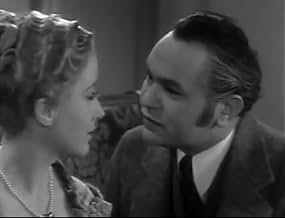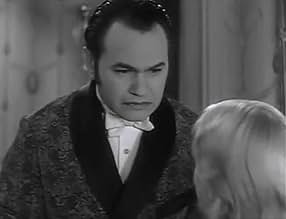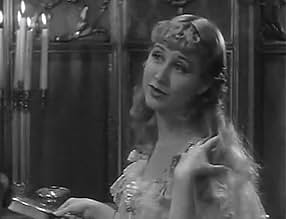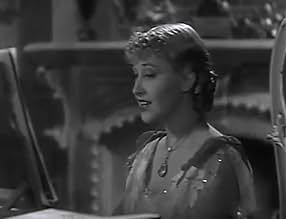Ajouter une intrigue dans votre langueArt student John Hayden interrupts his studies in Greece to head his father's meat packing business on his father's death. He marries social climber Martha who taunts him for his ideals rega... Tout lireArt student John Hayden interrupts his studies in Greece to head his father's meat packing business on his father's death. He marries social climber Martha who taunts him for his ideals regarding worker happiness and meat purity. He begins supporting the musical career of singer ... Tout lireArt student John Hayden interrupts his studies in Greece to head his father's meat packing business on his father's death. He marries social climber Martha who taunts him for his ideals regarding worker happiness and meat purity. He begins supporting the musical career of singer Laura. During the Spanish American war he sells the Army tainted meat. Martha puts detecti... Tout lire
- Réalisation
- Scénario
- Casting principal
- Récompenses
- 2 victoires au total
- Banker
- (non crédité)
- Doctor
- (non crédité)
- Banker
- (non crédité)
- Hayden's First Butler
- (non crédité)
- Voting Returns Announcer
- (non crédité)
Avis à la une
It's still worth it to see Robinson, Francis, and the other actors as they appeared in 1933.
The plot was not perfect and needed some paring down, and the ending left something to be desired, but this is a film you should see.
Nonetheless, ILAW is entertaining and absorbing with its often rambling tale of a Chicago robber baron loosely modeled after real life meat-packer Samuel Insull. And while the romantic scenes between Robinson and his leading ladies Kay Francis and Genevieve Tobin may lack appropriate chemistry or credibility, it cannot be denied that in ILAW Robinson delivered a robust and commanding performance. He was a powerful actor in this early pre-code effort, and certainly gave us every indication that he would evolve into the superb character actor that became his future destiny.
As for veteran director Alfred E. Green, he would go on to direct The Jolson Story, The Fabulous Dorseys and The Eddie Cantor Story among many other films.
ILAW is little known today. That is too bad, because it provides an excellent time capsule that captured three accomplished actors as they were moving into their peak career period, as well as just how the Warner Brothers Studio System actually worked in practice. Next time TCM shows ILAW, check it out!
And how lucky we are that a film company like First National existed in the early 30's, pumping out films with stars like EG Robinson at a rate that would leave a current studio breathless. What an exciting time it must have been. We are the beneficiaries of this fascinating time, when studios had to release new films in a rapid succession, such was the hunger for new films.
"I Loved a Woman" takes place over a 40 year period, taking us from late Victorian Chicago of 1892 to industrial Chicago of just a few decades later. The fashions change subtly over the 90 minutes this film takes. While some of the romantic scenes with Kay Francis are a bit dated, and the lovers' dialogue a little stilted, Robinson never fails to captivate us when he is on screen. If anybody can carry this stuff off, it is him (Robinson even sings in this movie, though happily not too much).
The supporting cast is strong and full of First National perennials, such as Robert Barrat, playing EGR's father-in-law. A special treat is the speaking appearance of one of John Ford's silent screen favorites, J. Farrel MacDonald.
This movie also features a speaking role for Theodore Roosevelt, who personally threatens to destroy the meat packer Hayden for selling rotten meat to the soldiers of the Spanish-American War.
Perhaps the only annoyance is having to put up with Kay Francis repeatedly singing Home on the Range in an opera voice while playing an upright piano. Once, maybe, but three times?....
One funny thing to look for early in the film: Robinson returns home from abroad after hearing of his father's death. A painting of dad hangs on the office wall - looking exactly like EG Robinson with full whiskers! A very nice touch.
This is a strong entry from First National Films, and a great way to get know the many sides of Edward G. Robinson. I highly recommend this one.
Edward G. Robinson stars as John Hayden. The film opens in 1892 with him as a young man buying up all the art he can find in Europe, when he is called home at his father's death to take over the family packing business in which he really has no interest. He falls in love with and marries the daughter of a rival packer (Genevieve Tobin) and finds her exciting and thinks she is a reformer, but she soon transforms into just another social climber and their romance cools. When that happens he falls in love with an ambitious opera singer (Kay Francis), and offers to build her an opera house??? Now tell me that Orson Welles the teenager was not in the front row of the theater, chowing down on popcorn, and thinking how he might spruce up this tale when he got his big chance?
The similarities between the tales end there, and it turns out Kay Francis' character is no Susan Alexander Kane, and also the ignored wife turns out to be more persistent and vindictive than Kane's wife. The film is ultimately a variation on a common Warner Brothers' Depression era theme - a cautionary tale against greed for greed's sake.
Kay Francis may be second billed, but ultimately Edward G. Robinson is the whole show. Since Robinson was two inches shorter than Francis, it looks like the director came up with all kinds of inventive ways for them to embrace and it not look like she was picking him up off the ground to kiss him. Finally, why would anybody think "Home on the Range" would be a good tune to be "our song" for any couple? It's all part of the wonderful weirdness that was early 30s Warner Brothers. Recommended for the novelty of it all.
I have to admit I was less impressed with this film than the first person who commented. First of all, with all of the beautiful operatic music in the world, why is the only song Laura sings "Home on the Range" - many times? Okay, I get the cattle theme but it was too much. And I didn't understand John suddenly becoming this ruthless man willing to send to soldiers overseas bad meat with fillers and other substances. Laura gives him one little lecture, and he turns into a third world dictator.
Robinson is very good, though he and Francis wear a lot of makeup. The characters, however, weren't especially likable or sympathetic. John does have the audience's sympathy at the beginning and at the very end, where Robinson's acting really stood out.
Le saviez-vous
- AnecdotesAlthough a novel by David Karsner is credited onscreen as the source, none has been located; it may not have been published. However, David Karsner's biography "Silver Dollar: The Story of the Tabors" was made into a film the previous year, also starring Edward G. Robinson named Valet d'argent (1932).
- GaffesThe newspaper item "10 Years Ago Today" near the end of the film stated that Hayden fled to Greece on the same day that the Chicago White Sox defeated Detroit, 10-6. But an item next to it noted that it was the 50th anniversary of the death of Scottish physicist James Clerk-Maxwell, which occurred in November 1879. Because the baseball season in 1919 ended in September, the anniversary of the White Sox-Tigers game could not have been on the same date as the anniversary of Maxwell's death.
- Citations
Charles Lane: John, you're mad!
John Mansfield Hayden: Yes. Maybe I am mad. But it's madmen who run the world today.
- Bandes originalesHome on the Range
(1904) (uncredited)
Music by Daniel E. Kelley (1904)
Lyrics by Brewster M. Higley (1873)
Played during the opening credits and at the end
Played on piano and sung by Kay Francis
Whistled and sung a cappella by Edward G. Robinson twice
Reprised by Kay Francis twice
Played by a band at the election celebration
Played as background music often as a love theme for John and Laura
Meilleurs choix
Détails
- Date de sortie
- Pays d’origine
- Langue
- Aussi connu sous le nom de
- I Loved a Woman
- Lieux de tournage
- Société de production
- Voir plus de crédits d'entreprise sur IMDbPro
- Durée
- 1h 30min(90 min)
- Couleur
- Mixage
- Rapport de forme
- 1.37 : 1


































